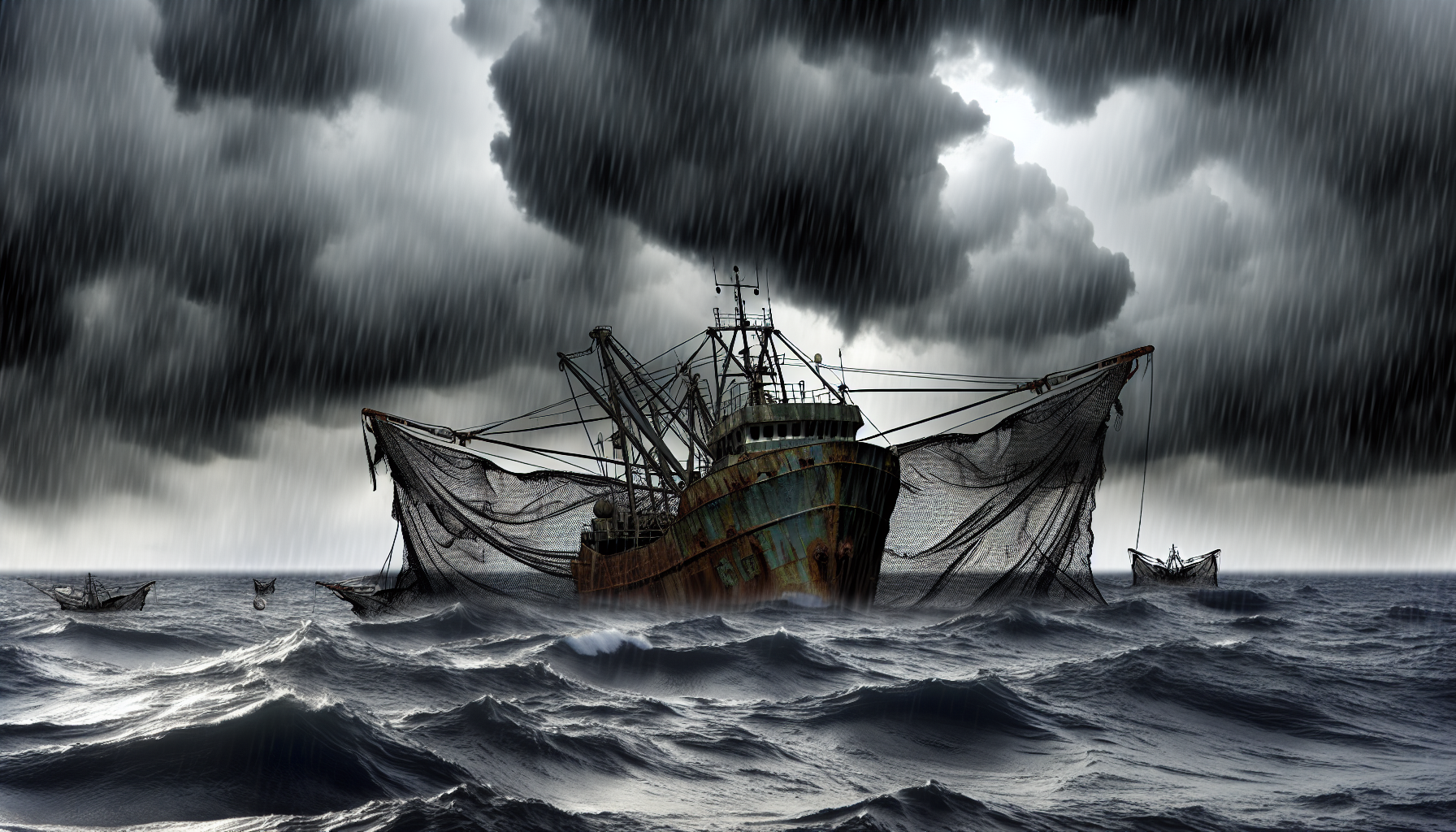In the shadow of a withered world, where vicious weather reigns and the seas thrash with fury, the Titan Trawlers rise. These are no ordinary vessels but monstrous behemoths, gargantuan in their stature, roaring through the swells with their cavernous nets, scooping what little life clings to the brink in our oceans. As the last vestiges of marine existence quiver in the murky depths, these Titans perpetuate the cycle of despair, yet today, we venture into a narrative lesser-told – a tale of misguided attempts at nurturing these steel leviathans.
With acute irony, one might consider the nurturing of such monstrosities, man’s unwitting gift to modernity, as outright folly. Yet, these Titan Trawlers have become, for better or worse, the new nurturers; a perverted substitute for the once teeming, albeit now suffocated, forces of Mother Nature. The industry morosely rejoices as these metallic hydras enable a final dance upon the grave of maritime abundance.
Decades of environmental neglect have assured that traditional fishing methods belong to a bygone era, a romanticized history. Hence, ‘Forgotten Trawls – The Vanishing Art of Fishing’ resonates evocatively at this juncture, reminding us of our lost intimacy with the sea. Even as these Titan Trawlers represent an apex of human ingenuity, they stand testament to our profound disconnection with the natural world. They are not just machines, but symbols; vast, drifting monuments to our environmental apathy.
Under the thunderous hum of engines, seasoned mariners pilot these Titans, their weathered gazes devoid of hope, bearing stories of the sea mournful enough to dampen the soul. The rarity of a good catch no longer sparks joy but spawns despair amidst the toxic bounty reeled in. Theirs is a tale of perpetual mourning, as the nets, meant for harvest, often return with grotesque testimonies of oceanic ruin.
Yet within the belly of the beast, innovation persists. Scientists aboard work lamentably to mitigate the damage, devising ways to harvest without further disrupting the frail remnants of marine ecosystems. Through a macabre lens, one could call this innovation. Still, desperation more accurately colors the efforts to cultivate what is left, to nurture not life, but the engineering prowess of the Titan Trawlers themselves.
Regulators, too, play their hand in this dystopian tableau, prescribing quotas and imposing sanctions – mere whispers against the tempest. Their words, lost on the winds, struggle to instill discipline in an industry governed by survival, not sustainability. It is a grim pageantry of control, a testament to humanity’s inability to combat its self-crafted behemoth of destruction.
And in the inky black below, a silent war rages. Marine species, once the jewels of the deep, now contend with the predatory efficiency of mankind’s creations. Their existence hangs precariously by a thread, each haul of the Titan Trawler a potential epilogue for a species’ tale.
Despite the bleak canvas painted, an inexplicable fascination endures with the Titan Trawlers. Their spectacle of power and might, coupled with the staunch defiance of environmental reality, secures an odd form of reverence. As humanity’s torchbearers in an ocean darkened by its neglect, they inspire tales that drift between awe and horror – a certain allure to the tragic.
This sad nurturing of the Titans is not a story of hope or reversal, but rather a morbidly fascinating chronicle of adaptability and irony. Each trawler, with its immense capacity for continued extraction, excels in the perverse mission of sustaining the unsustainable. The nurturing of the Titans is thus – an elixir of longevity in a cup wrought from poison.
To the observant eye, the tale of the Titan Trawlers is multifaceted. It’s a potent, unavoidable dialog about our existence, where contemplation intersects with the urgent need to act in the real present. It’s a call from the depths, a plea for reflection in each thunderous chug, and every empty haul. Still, it manages to be magnetic, a siren song of the Anthropocene.
